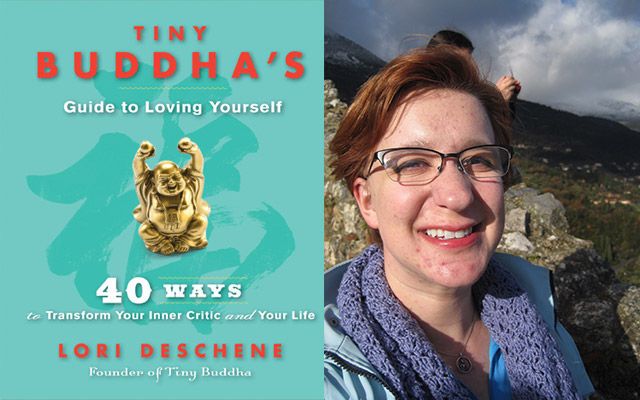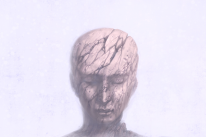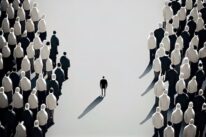
This month we’re celebrating the upcoming launch of Tiny Buddha’s Guide to Loving Yourself, a book about taming your inner critic that features 40 stories from Tiny Buddha contributors.
Throughout September, you’ll have a chance to meet some of them through daily interviews here on the blog.
Today’s featured contributor is Elizabeth Garbee, a college student and regular Tiny Buddha reader who plays the violin.
Her contribution for the book urges us to stop clinging to people as a means of feeling we are loved.
A little more about Elizabeth…
1. Tell us a little about yourself and your self-love journey.
I’m a work in progress.
2. Have you ever felt there’s “something wrong with you”? If so, why, and what’s helped you change your perception?
I’m 21 years old, and have never been in even a casual “relationship.” Not for lack of interest, or even lack of trying. It just hasn’t felt right yet.
I used to let that really bother me that no one ever asked me out. And whenever I’ve asked someone or tried to gauge their interest, I’ve always received a “no,” “never,” or “I’m not ready for a relationship right now.” With a track record like that, it’s hard not to think there might actually be something wrong with you, something that just turns people off.
My perception is still evolving. But what helps me the most when that feeling resurfaces is to remember that those thoughts are just part of a worn out story my brain wants to tell me.
And when I separate myself from the thoughts, the words, and just let my brain chatter away to itself, the volume goes down. Without a captive audience, those thoughts just fade away.
3. What was your biggest mistake (that you’re willing to share), and what helped you forgive yourself?
My biggest mistakes have always resulted from not believing people when they try to tell/show me who they are.
I instead will continue to see them as the person I would like them to be, ignoring the signs and signals they’re sending—resulting in me trusting them with a secret they aren’t able to bear, or giving them responsibilities they can’t shoulder.
In those cases, the responsibility for the relationship falling apart is mine, because I mistook the person in front of me for the version I had created in my head.
Forgiveness has always come in hindsight, and often because I’m able to connect the dots that led to the mistake to see that I had to learn that lesson before I could close that door and open the next one.
When you know better, you do better—and until you know better, you’ll continue to make the same mistake. Forgiveness is giving yourself permission to get back on your feet after you fall, knowing full well that you may land right back on the ground.
4. Complete this sentence: When other people don’t like me, I…
…let them. My responsibility is to be authentic to myself and put my best face forward. What other people do with that is up to them, and completely out of my hands.
5. What are some areas in your life where you’ve compared yourself to other people, and what’s helped you let go of these comparisons?
In high school, I struggled with something I now recognize as a mild eating disorder: suffice it to say that I had a very adversarial relationship with food.
I won’t pretend that I don’t still compare my body to that of other women, because I do. It’s something I wrestle with every day. But I make those comparisons less and less because I realized at some point that I don’t actually want what those women seem to have—my body is strong, my body is patient, and has withstood all the crazy I’ve thrown at it.
I’ve earned this body, and wouldn’t trade it for one that’s taller or has narrower thighs.
6. What’s one thing you would tell your younger self about looking to other people to complete you?
It’s gonna happen—inevitably, you’ll find yourself trying to fill the hole in your heart with people you think are the right shape. But don’t punish yourself when those relationships fall apart.
Rather, take a good look at what qualities made you think that person was the right shape in the first place: chances are, you were drawn to them because they reflected parts of yourself that you have been neglecting. Nourish them and the hole might start to shrink, until you wonder why you ever thought it was there to begin with.
7. Have you ever felt afraid to show people your “real” self? Why—and what’s helped you move beyond that?
Oh, every day. It takes so much courage to be vulnerable that some days I would much rather wear a mask and keep myself under the surface. My “real” self changes day by day, and it’s so hard to continue to get to know yourself while simultaneously presenting that self to other people.
I was, like a lot of people, always afraid that if I truly “showed up,” no one would like what they saw. Or perhaps even worse, that no one would see me at all.
I think at some point I just got tired of carefully editing and monitoring my behavior. It’s exhausting!
Just recently, I went through a really rough few weeks and was trying to put on a brave face to avoid having to answer a lot of questions. But I totally lost my composure one night, and rather than back away and leave the room, a good friend sat next to me on my bed and just held me.
Few people have seen me cry like that, and letting my true feelings out didn’t even faze him. If you let the “real you” come to the surface, baggage and all, the people who truly matter will stick around, I promise.
8. What are the top three things you personally need to do to take good care of yourself, mentally and emotionally?
- Drink plenty of water (and tea)
- Get a good night’s sleep
- Make time every day to practice my violin. It’s one of the few times when I can check in with myself and reflect with no pretense and no filters. Some people meditate—I play Bach.
9. What’s something you do regularly that makes you feel proud of the difference you’re making in the world?
I don’t ever really think about the “difference I’m making in the world.” It always struck me as a bit presumptuous to claim to know how you’re changing the big picture.
I simply try every day to have a net positive impact on the lives of those I’m with. No grand design or lofty purpose: just a quiet practice of empathy and gratitude. That, and a steady stream of home baked goods.
*Note: I edited this post to remove info about the pre-order promotion, which ended on October 8, 2013. You can learn more about Tiny Buddha’s Guide to Loving Yourself here.
About Lori Deschene
Lori Deschene is the founder of Tiny Buddha. She started the site after struggling with depression, bulimia, c-PTSD, and toxic shame so she could recycle her former pain into something useful and inspire others to do the same. You can find her books, including Tiny Buddha’s Gratitude Journal and Tiny Buddha’s Worry Journal, here and learn more about her eCourse, Recreate Your Life Story, if you’re ready to transform your life and become the person you want to be.
- Web |
- More Posts













 Though I run this site, it is not mine. It's ours. It's not about me. It's about us. Your stories and your wisdom are just as meaningful as mine.
Though I run this site, it is not mine. It's ours. It's not about me. It's about us. Your stories and your wisdom are just as meaningful as mine.
Just beautiful! I am very much a work in progress too, and can relate to fearing other people’s perceptions of me. They say esteem-able acts create self esteem, and I find when I’m being kind to someone and giving of myself, I feel lighter and less concerned by the opinions of others. Great interview!
Great story, Elizabeth. The best thing you can be is yourself.
Oh! Oh! Oh! #3 just totally made my day!!! They were all wonderful to read but that first sentence just stopped me cold. Thank you for sharing your journey!
I loved this! Period!
Elizabeth, I can’t believe that you are 21 years old. Your responses just blow me away; there is a depth and wisdom to you that amazes me. I really enjoyed reading your interview. Keep playing that violin!